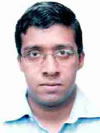Overview
Engineers designing planes, trains, automobiles and a vast array of new products are constantly striving to tame dynamic loads that lead to undesirable noise and premature product failures. As the engineers work towards their goals, they need to keep an eye on the cost and time-to-market. The simulation as a tool has kept pace with the needs of the engineers to help them solve these problems. Modal analysis is one such tool that is powerful and fundamental to solving noise and vibration problems. This webinar will focus on correlation, the last mile problem in modal analysis. The webinar will give an overview of the following topics
- Finite element approach to modal analysis
- Latest trends in experimental modal analysis
- Good and bad data – how to tell the difference?
- Modeling and measuring damping
- Correlation metrics
Who Should Attend?
Designers using simulation tools, test engineers, engineering consultants, researchers in dynamics and controls. The case studies may not cover all industries, but the underlying concepts are applicable in automotive, aerospace, energy, heavy equipment, off-highway vehicles, oil and gas, offshore structures, wind energy, and civil engineering.
Agenda
Welcome & Introduction
David Quinn, NAFEMS
Dr.K. Elangovan, NAFEMS India
Correlation of FE Modal Analysis with Experimental Vibration Data
Mr. Dhanushkodi,.D.M, TechPassion
Q & A Session

 Dhanushkodi is the CEO of TechPassion. He earned a B.Tech in Mechanical Engineering from Indian Institute of Technology, Madras. He did his graduate studies at the Massachusetts Institute of Technology and earned masters in Mechanical Engineering. His graduate thesis involved the design and development of high speed positioning systems with applications in semiconductor and machine tool industry. His bachelors thesis led to the development of a custom built finite element software for analyzing rotating machinery using the cyclic symmetry. This led to a journal publication in the “Advances in Engineering Software”.
Dhanushkodi is the CEO of TechPassion. He earned a B.Tech in Mechanical Engineering from Indian Institute of Technology, Madras. He did his graduate studies at the Massachusetts Institute of Technology and earned masters in Mechanical Engineering. His graduate thesis involved the design and development of high speed positioning systems with applications in semiconductor and machine tool industry. His bachelors thesis led to the development of a custom built finite element software for analyzing rotating machinery using the cyclic symmetry. This led to a journal publication in the “Advances in Engineering Software”.
